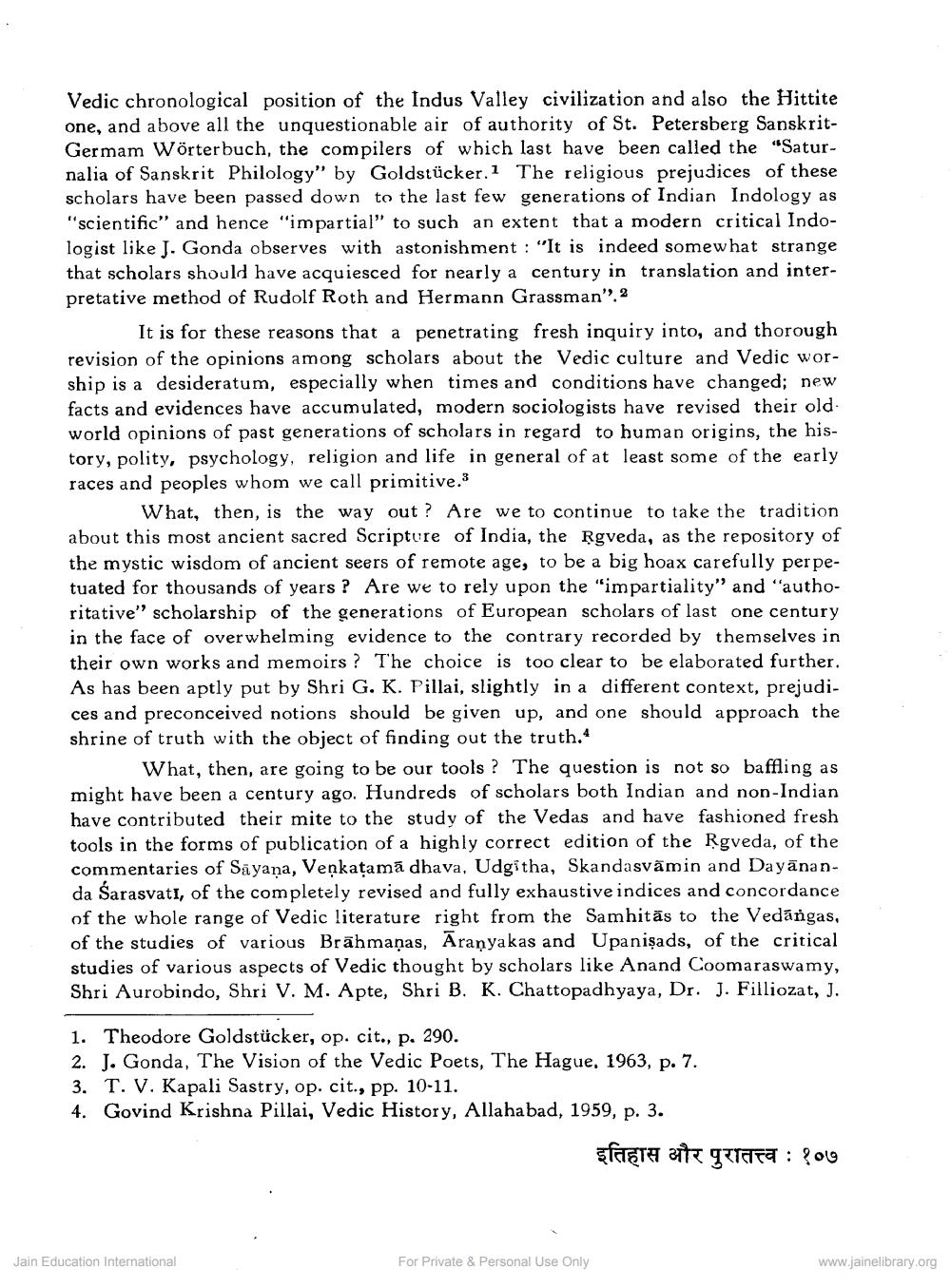________________
Vedic chronological position of the Indus Valley civilization and also the Hittite one, and above all the unquestionable air of authority of St. Petersberg SanskritGermam Wörterbuch, the compilers of which last have been called the "Saturnalia of Sanskrit Philology" by Goldstücker. The religious prejudices of these scholars have been passed down to the last few generations of Indian Indology as "scientific" and hence "impartial" to such an extent that a modern critical Indologist like J. Gonda observes with astonishment: "It is indeed somewhat strange that scholars should have acquiesced for nearly a century in translation and interpretative method of Rudolf Roth and Hermann Grassman","
It is for these reasons that a penetrating fresh inquiry into, and thorough revision of the opinions among scholars about the Vedic culture and Vedic worship is a desideratum, especially when times and conditions have changed; new facts and evidences have accumulated, modern sociologists have revised their oldworld opinions of past generations of scholars in regard to human origins, the history, polity, psychology, religion and life in general of at least some of the early races and peoples whom we call primitive."
What, then, is the way out? Are we to continue to take the tradition. about this most ancient sacred Scripture of India, the Rgveda, as the repository of the mystic wisdom of ancient seers of remote age, to be a big hoax carefully perpetuated for thousands of years? Are we to rely upon the "impartiality" and "authoritative" scholarship of the generations of European scholars of last one century in the face of overwhelming evidence to the contrary recorded by themselves in their own works and memoirs? The choice is too clear to be elaborated further. As has been aptly put by Shri G. K. Pillai, slightly in a different context, prejudices and preconceived notions should be given up, and one should approach the shrine of truth with the object of finding out the truth."
What, then, are going to be our tools? The question is not so baffling as might have been a century ago. Hundreds of scholars both Indian and non-Indian have contributed their mite to the study of the Vedas and have fashioned fresh tools in the forms of publication of a highly correct edition of the Rgveda, of the commentaries of Sayana, Venkatama dhava, Udgitha, Skandasvamin and Dayananda Sarasvati, of the completely revised and fully exhaustive indices and concordance of the whole range of Vedic literature right from the Samhitas to the Vedängas, of the studies of various Brahmaņas, Aranyakas and Upanisads, of the critical studies of various aspects of Vedic thought by scholars like Anand Coomaraswamy, Shri Aurobindo, Shri V. M. Apte, Shri B. K. Chattopadhyaya, Dr. J. Filliozat, J.
1. Theodore Goldstücker, op. cit., p. 290.
2. J. Gonda, The Vision of the Vedic Poets, The Hague. 1963, p. 7.
3. T. V. Kapali Sastry, op. cit., pp. 10-11.
4. Govind Krishna Pillai, Vedic History, Allahabad, 1959, p. 3.
Jain Education International
For Private & Personal Use Only
इतिहास और पुरातत्व १०७
:
www.jainelibrary.org




